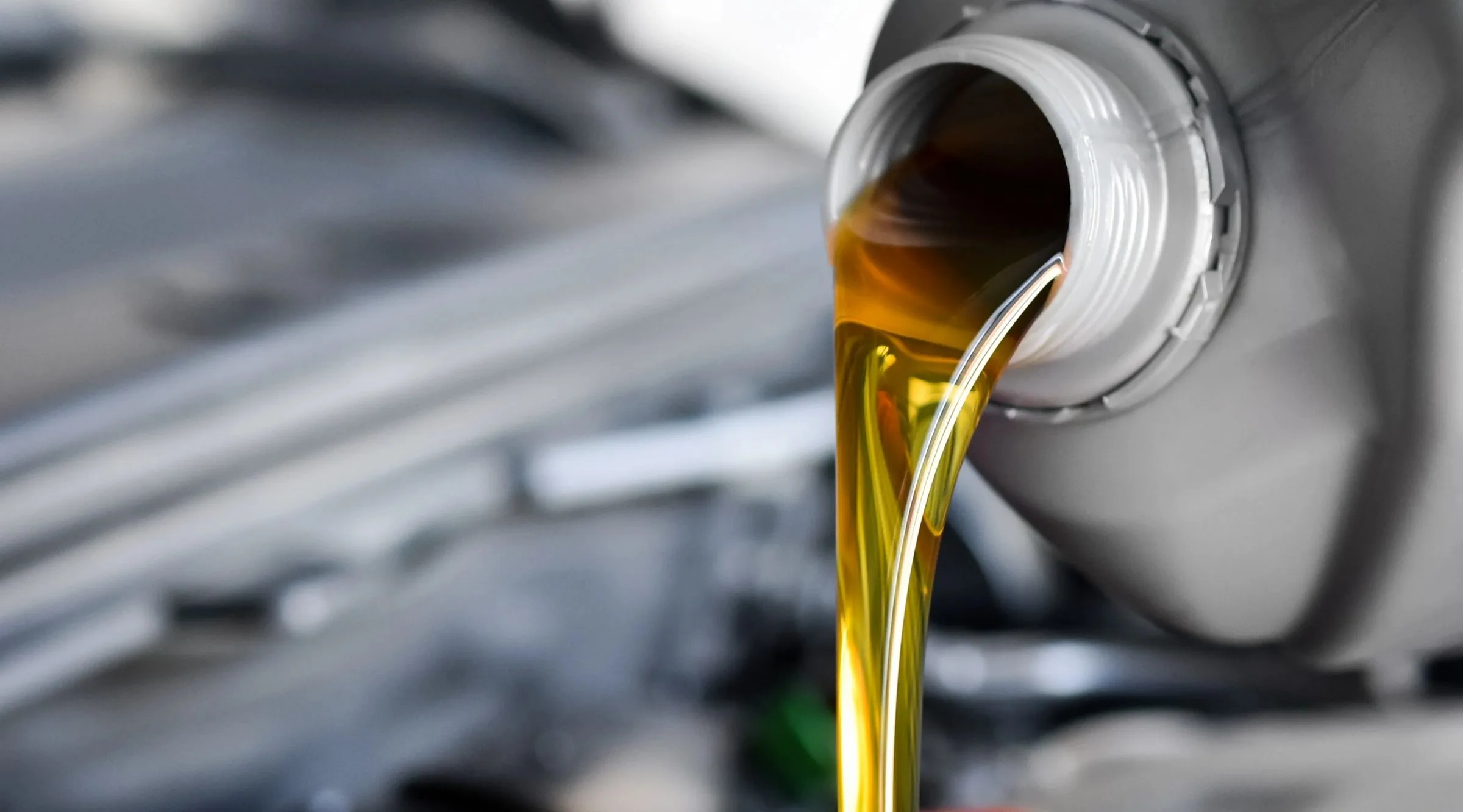The Importance of Regular Oil Changes: How It Impacts Engine Longevity
Introduction
When it comes to vehicle maintenance, regular oil changes are one of the simplest yet most critical tasks you can perform. As a master mechanic with years of experience, I’ve seen countless engines suffer avoidable damage due to neglect in this area. In this article, I’ll explain why regular oil changes are essential for your engine’s longevity, how often you should change your oil, and what happens if you don’t. My goal is to arm you with the knowledge you need to keep your vehicle running smoothly for years to come.
What Does Motor Oil Do?
Motor oil plays several crucial roles in your vehicle’s engine. Understanding these roles is key to appreciating why regular oil changes are so important.

- Lubrication
The primary function of motor oil is to lubricate the moving parts within your engine. Without proper lubrication, the metal components would grind against each other, causing friction and heat. This can lead to excessive wear, damage, and ultimately, engine failure. - Cooling
As oil circulates through the engine, it helps to dissipate heat. While your vehicle’s coolant system handles most of the cooling, oil plays a supporting role by absorbing heat from engine parts and moving it away from the hottest areas. - Cleaning
Over time, contaminants such as dirt, metal particles, and carbon accumulate in your engine. Motor oil helps to trap these contaminants, carrying them to the oil filter where they can be removed. This keeps your engine clean and reduces the risk of damage. - Sealing
Oil also acts as a sealant, filling in tiny gaps between engine parts, particularly in the pistons and cylinders. This helps to maintain compression, which is essential for efficient engine operation. - Corrosion Prevention
Modern motor oils contain additives that help prevent corrosion inside the engine. This is particularly important in areas with high humidity or salt exposure, such as Sarasota, FL.
How Often Should You Change Your Oil?
The frequency of oil changes depends on several factors, including your driving habits, the type of oil you use, and your vehicle’s make and model. Here’s a general guideline:
- Conventional Oil
If your vehicle uses conventional motor oil, it’s typically recommended to change it every 3,000 to 5,000 miles. However, this can vary based on your driving conditions. - Synthetic Oil
Synthetic oils offer superior protection and can last longer, typically 7,500 to 10,000 miles between changes. Some high-performance synthetic oils can even go up to 15,000 miles. - Driving Conditions
If you frequently drive in extreme temperatures, stop-and-go traffic, or tow heavy loads, you may need to change your oil more often. These conditions put extra strain on your engine, making regular oil changes even more critical. - Manufacturer’s Recommendations
Always refer to your vehicle’s owner manual for the manufacturer’s recommended oil change intervals. Following these guidelines is the best way to ensure your engine remains in top condition.
Trust Car Tune Up – Sarasota for all your routine maintenance needs! We stay up-to-date with the latest manufacturer recommendations, ensuring your vehicle gets the expert care it deserves. Let us handle the details so you can enjoy a smooth, worry-free drive.
What Happens If You Don’t Change Your Oil Regularly?

Neglecting regular oil changes can lead to a host of problems, some of which can be extremely costly to repair. Here’s what can happen:
- Increased Friction and Wear
Over time, oil breaks down and loses its ability to lubricate effectively. This increases friction between the engine’s moving parts, leading to accelerated wear and tear. - Overheating
As oil ages, it becomes less effective at absorbing and dissipating heat. This can cause your engine to overheat, leading to potentially catastrophic damage such as a blown head gasket or even engine failure. - Sludge Buildup
Old oil can turn into sludge, a thick, tar-like substance that can clog your engine’s passages. Sludge buildup restricts oil flow, further increasing the risk of overheating and wear. - Reduced Fuel Efficiency
Dirty or degraded oil can cause your engine to work harder, leading to reduced fuel efficiency. This means more trips to the gas station and higher fuel costs over time. - Voided Warranty
Many vehicle warranties require you to follow a regular maintenance schedule, including oil changes. Failing to do so can void your warranty, leaving you responsible for expensive repairs.
Benefits of Regular Oil Changes
Now that we’ve covered the risks of neglecting oil changes, let’s look at the benefits of staying on top of this essential maintenance task.
- Extended Engine Life
By keeping your engine well-lubricated and free of contaminants, regular oil changes significantly extend its lifespan. A well-maintained engine can easily last over 200,000 miles, saving you the cost of premature replacement. - Improved Performance
Fresh oil allows your engine to operate more smoothly, improving performance. You’ll notice better acceleration, quieter operation, and overall smoother driving. - Enhanced Fuel Efficiency
Clean oil reduces engine friction, allowing it to run more efficiently. This translates to better fuel economy, saving you money at the pump. - Reduced Emissions
Regular oil changes help your engine burn fuel more cleanly, reducing harmful emissions. This is especially important in areas with strict environmental regulations. - Lower Repair Costs
Regular oil changes are relatively inexpensive compared to the cost of repairing or replacing a damaged engine. By investing in this simple maintenance task, you can avoid much larger repair bills down the road.
How to Choose the Right Oil for Your Vehicle
Choosing the right oil for your vehicle is crucial to ensuring optimal performance and longevity. Here’s what to consider:
- Viscosity
The viscosity, or thickness, of oil is denoted by numbers such as 5W-30 or 10W-40. Your vehicle’s manufacturer will recommend the right viscosity for your engine. It’s important to stick to these recommendations, as using the wrong viscosity can affect engine performance. - Conventional vs. Synthetic
Conventional oils are derived from crude oil and are generally less expensive. However, synthetic oils offer better performance, especially in extreme temperatures, and last longer between changes. For newer vehicles or those driven in demanding conditions, synthetic is often the better choice. - Additives
Modern motor oils contain various additives that enhance performance. These include detergents to keep the engine clean, anti-wear agents to protect against friction, and antioxidants to prevent oil degradation. Choosing an oil with the right additives for your engine can further enhance its longevity. - Manufacturer’s Recommendations
Always follow the oil type recommended in your vehicle’s owner’s manual. This ensures that the oil meets the specific requirements of your engine, whether it’s conventional, synthetic, or a blend.
The Process of Changing Your Oil
If you’re curious about what happens during an oil change, here’s a quick overview of the process:
- Draining the Old Oil
The first step is to drain the old oil from your engine. This is done by removing the drain plug at the bottom of the oil pan, allowing the oil to flow out into a collection container. - Replacing the Oil Filter
The oil filter, which traps contaminants, is then removed and replaced with a new one. This is a crucial step, as a clogged filter can reduce oil flow and lead to engine damage. - Adding New Oil
Once the old oil has been drained and the filter replaced, new oil is added to the engine. The amount and type of oil depend on your vehicle’s specifications. - Checking for Leaks
After the new oil has been added, the mechanic will start the engine and check for leaks around the drain plug and filter. This ensures that everything is properly sealed and the oil is circulating correctly. - Resetting the Oil Change Indicator
Finally, if your vehicle is equipped with an oil change indicator, it will be reset to remind you when the next oil change is due.
Common Oil Change Myths Debunked

There’s a lot of misinformation out there about oil changes. Let’s clear up some of the most common myths:
- Myth: You Must Change Your Oil Every 3,000 Miles
While this was true decades ago, modern engines and oils have come a long way. Many vehicles can go 7,500 miles or more between oil changes, especially if using synthetic oil. Always refer to your owner’s manual for the correct interval. - Myth: Synthetic Oil Causes Leaks
Some believe that synthetic oil is too “thin” and can cause leaks in older engines. In reality, synthetic oil is formulated to be compatible with all engine types and can actually help reduce leaks by keeping seals in better condition. - Myth: Dark Oil Means It’s Time to Change It
While dark oil can be a sign that it’s doing its job of cleaning the engine, it’s not necessarily a reason to change it immediately. The best way to know when it’s time for an oil change is to follow the mileage and time intervals recommended by your vehicle’s manufacturer. - Myth: You Can’t Switch Between Conventional and Synthetic Oil
You can switch between conventional and synthetic oil without any issues. Some drivers even use a blend of both. Just be sure to choose the right viscosity for your engine.
Conclusion
Regular oil changes are a small investment with a big payoff when it comes to your vehicle’s health and performance. By staying on top of this essential maintenance task, you can significantly extend the life of your engine, improve your vehicle’s performance, and save money on fuel and repairs.
Whether you choose to do it yourself or trust a professional, remember that consistency is key. Don’t wait until your engine is making strange noises or showing signs of wear—schedule your oil change today and keep your vehicle running smoothly for years to come.
Schedule an oil change with Car Tune Up – Sarasota, LLC now to ensure your engine stays in peak condition.
References:


